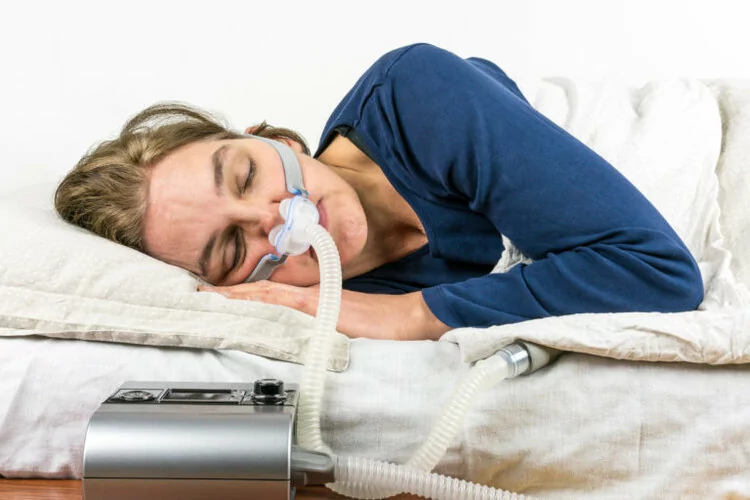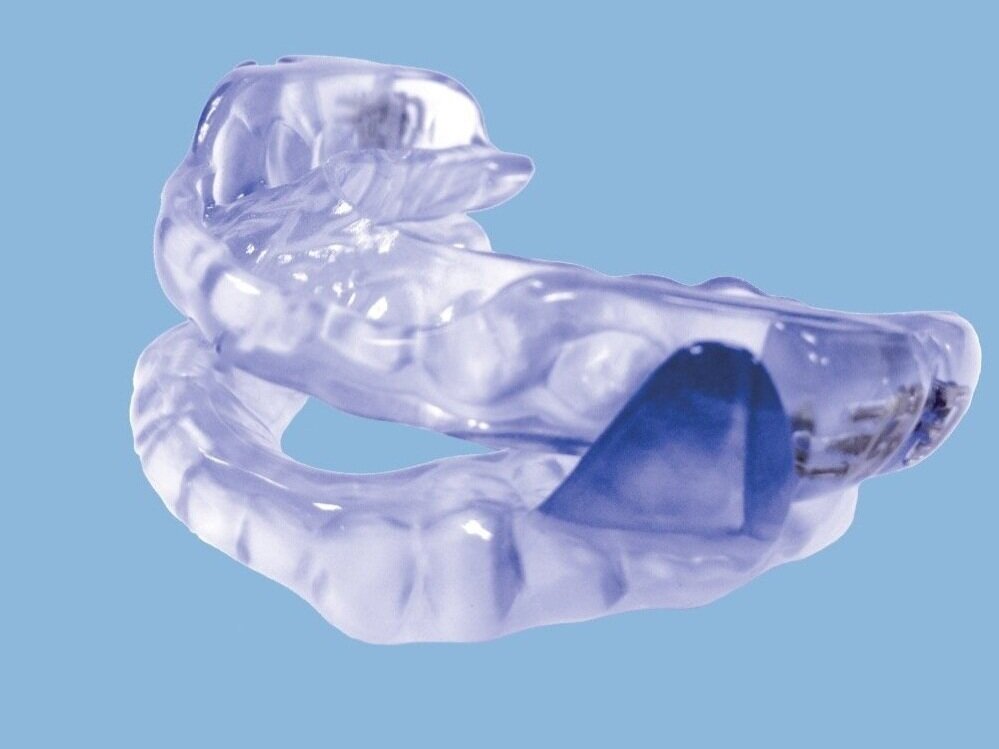Oral Appliance vs. CPAP
Many patients still mistakenly believe that CPAP therapy is the only option available for treating obstructive sleep apnea (OSA).
Thankfully, the American Academy of Sleep Medicine agrees that oral appliance therapy from an experienced and qualified dental professional like Dr. Tim Stirneman here at Sleep Better Illinois can also provide much-needed relief.
This is wonderful news for patients who have proven to be intolerant of the bulky facial masks and loud noises associated with traditional CPAP care.

Is Oral Appliance Therapy Right For Me?
There are several cases where oral appliance therapy is a worthwhile alternative to CPAP treatment. These include:
- If a patient is suffering from mild to moderate apnea and they’ve undergone no treatment for their condition yet.
- If a patient is intolerant to CPAP treatment.
- If a patient is struggling with loud, chronic snoring but is not experiencing actual sleep apnea as of now.
- If a sleep apnea patient travels often and is in need of a portable treatment option.
- If a patient has undergone surgery and achieved little to no relief from their sleep apnea symptoms.
- If a patient with severe sleep apnea is in need of combination therapy with both CPAP treatment and an oral appliance.

Oral Appliance Benefits.
- Non-invasive
- No on-going supply costs & upkeep
- Custom-fit to maximize effectiveness
- Quiet & comfortable
- Portable & travel-friendly

“CPAP alternatives, such as oral appliances customized and fitted by a trained dentist, could be a better solution for those with mild to moderate sleep apnea. They are small, comfortable, durable, and you can talk and drink while wearing them as well as the benefit of sleeping in your desired position.”
— Dr. Tim Stirneman
What should I expect from Oral Appliance Therapy?
After relying on oral appliance therapy for some time, most sleep apnea patients report that their adjustment period was significantly more comfortable and shorter when compared to CPAP treatment. However, patients should still be aware of some potential side effects that may occur when using an oral appliance. These effects are typically very minor, and they should cease to be problems within a few weeks of diligent use. They include:
- Soreness in the teeth and/or gums.
- A change in your saliva production (could be an increase or decrease).
- A change in the way your bite fits together.
- Tension, clicking, or any kind of discomfort located in the jaw.